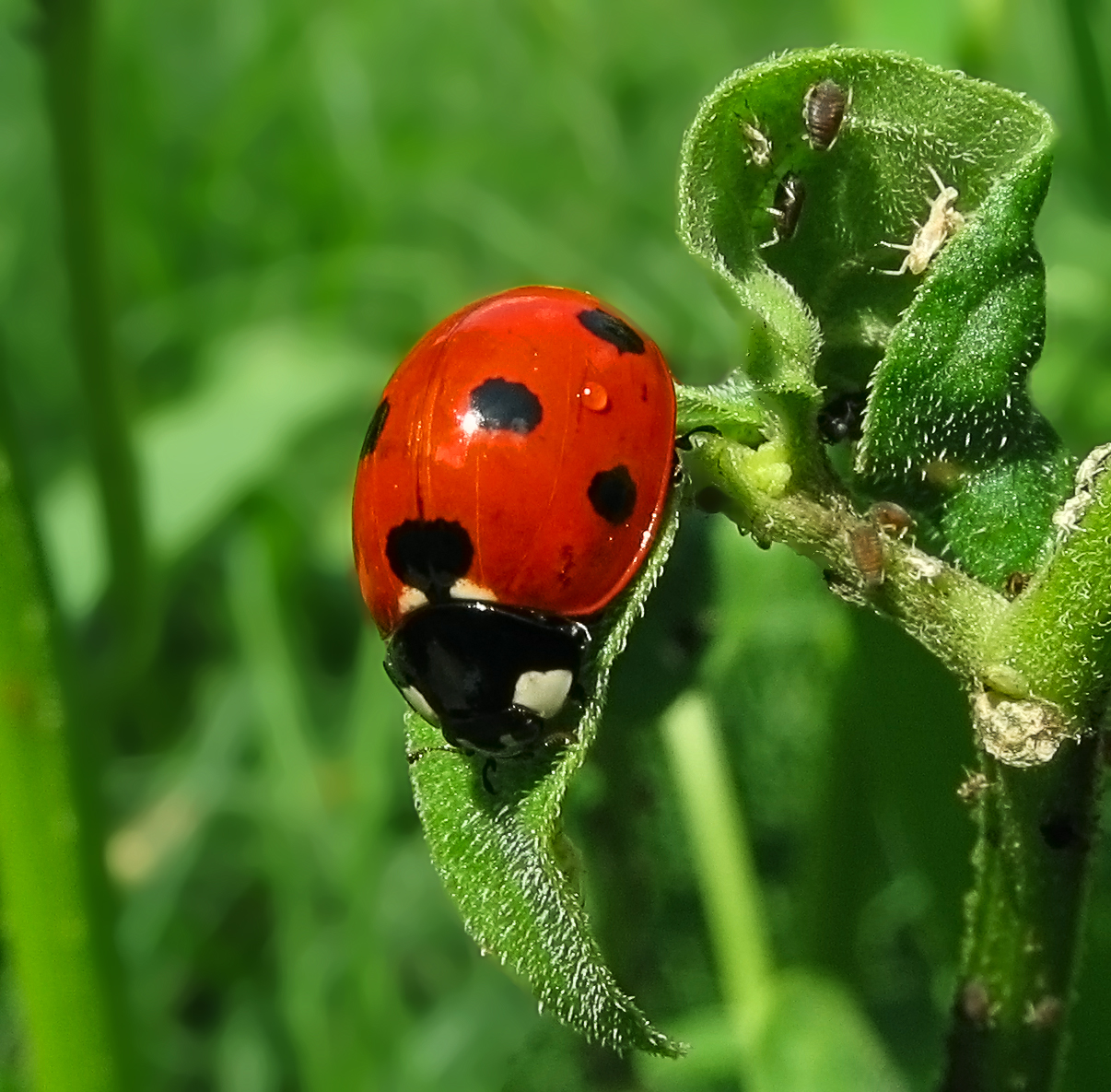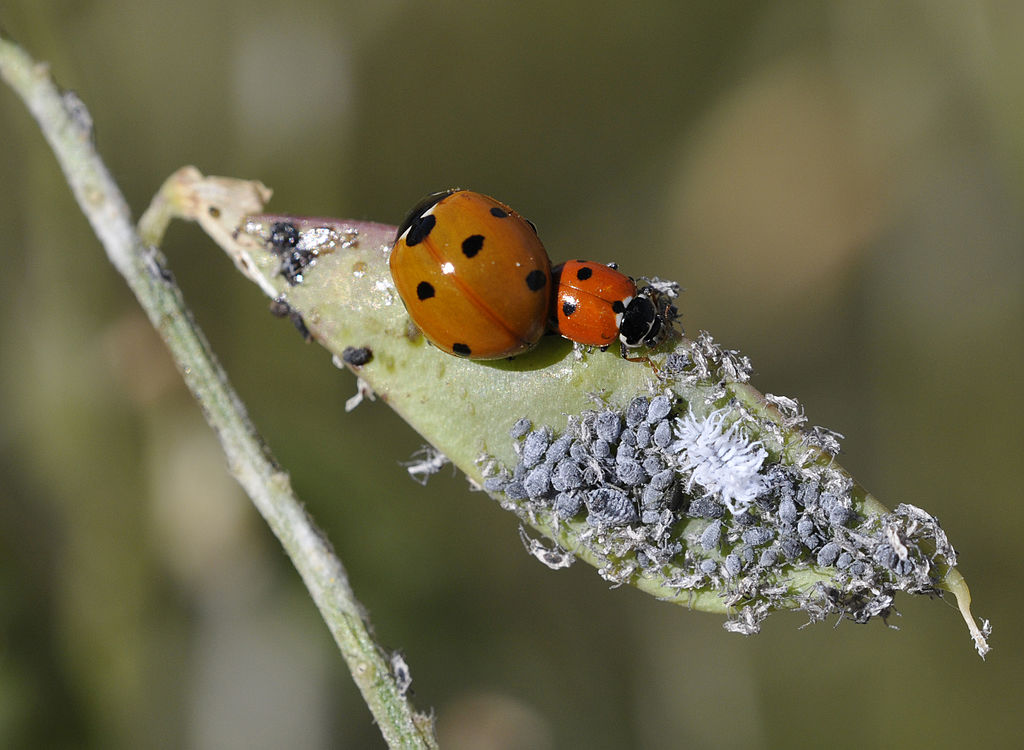Starkville, Mississippi —(Map)
Scientists have learned that to ladybugs, loud rock music is noise pollution. Knowing that could make a difference to farmers, since ladybugs eat smaller pests that feed on crops (the plants farmers grow).
Brandon Barton is a scientist at Mississippi State University who likes heavy rock music, sometimes called “heavy metal” music. AC/DC is a famous heavy metal band. Dr. Barton was listening to a song by AC/DC called “Rock and Roll Ain’t Noise Pollution” when he had an idea.

This is the band AC/DC playing in 2009.
(Source: Imhavingfun42, from Wikimedia Commons.)
Dr. Barton thought that “Rock and Roll ain’t noise pollution” was a good hypothesis – an idea he could test. If he planned a good experiment, he could prove whether it was true or not.
Ladybugs are colorful beetles that are sometimes called “ladybirds”. They look pretty, but they are big hunters. They can kill large numbers of aphids and other small pests that can ruin farmers’ crops. Since ladybugs are so important to farmers, Dr. Barton chose them for his experiment.
To test his idea, Dr. Barton’s team took soybean plants that were being attacked by aphids and put them in special growing rooms called “growth chambers”. Then they put ladybugs in the chambers.

(Source: Greyson Orlando, via Wikimedia Commons.)
In some of the chambers, there was no sound. In each of the other chambers, the scientists played different kinds of music, like AC/DC, rock music, country music, and folk music. In one chamber, they played city sounds, like traffic, sirens, car horns, and machines. They played the music and the sounds very loudly.
The answer to the AC/DC hypothesis, at least for ladybugs, is that Rock and Roll is noise pollution.
When the scientists compared how much the ladybugs had eaten, they found that the beetles who had to listen to AC/DC, rock music, and city noises ate far fewer aphids than any of the others. The ladybugs who had heard country or folk music ate about as many aphids as those who had had no sound.

(Source: Zeynel Cebeci, from Wikimedia Commons.)
“That’s a bad thing if you’re a gardener, that’s a bad thing if you’re a farmer, and it’s a bad thing just in general,” said Dr. Barton.
The loud rock music and noise never seemed to bother either the plants or the aphids – just the ladybugs. Once the sound was turned lower, the ladybugs started eating again, no matter what was playing.
Dr. Barton doesn’t think anyone is really worried about rock and roll affecting soybeans. But he says the experiment proves the idea “…that noise pollution can affect soybeans. We used rock and roll, but it could be the noises from cities…”
In cities, people get used to hearing loud sounds all the time. But Dr. Barton’s experiment shows that these loud sounds keep ladybugs from doing a good job of eating pests. That’s something farmers should keep in mind if the areas around their farms get noisy.
So, for those about to rock, think twice if you’re near a farm.
😕
This map has not been loaded because of your cookie choices. To view the content, you can accept 'Non-necessary' cookies.
